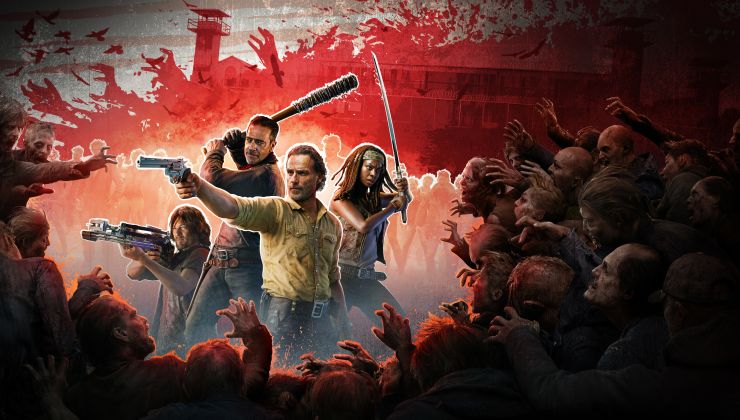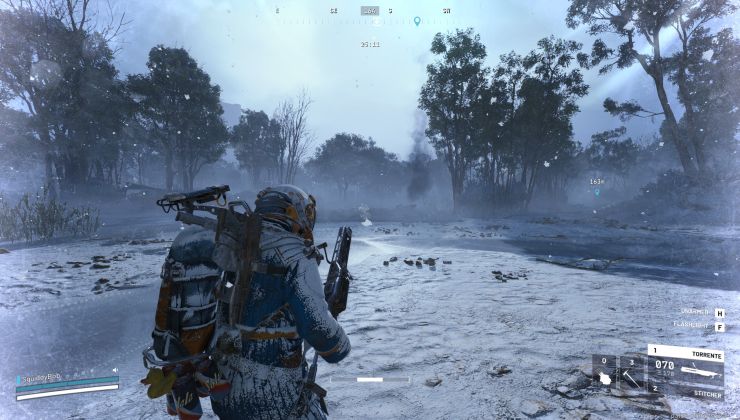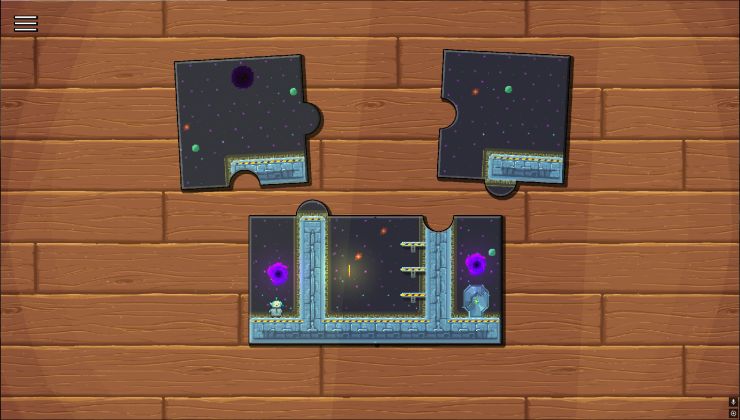NVIDIA announced today an expansion of RTX and DLSS for plenty of Windows games, and for Linux users there's something exciting coming too: NVIDIA will hook up DLSS with DirectX 11 and 12 with Proton in September.
What is DLSS? NVIDIA DLSS (Deep Learning Super Sampling) is an AI-powered rendering tech to help increase performance for NVIDIA GPUs using their dedicated Tensor Core AI processors. It helps to boost framerates by rendering frames at a lower resolution and then it's made to look much crispier using deep learning.
Currently DLSS on Linux with Proton only works with Vulkan titles but that's about to change in September. In their announcement they said:
Recently, we launched support for NVIDIA DLSS in Proton, enabling Linux gamers to play Vulkan API games with NVIDIA DLSS, including DOOM Eternal, No Man’s Sky, and Wolfenstein: Youngblood. Next month, support extends to dozens of DirectX 11 and DirectX 12 games, including Control, Cyberpunk 2077, Death Stranding, F1 2020, Mechwarrior 5: Mercenaries, and Necromunda: Hired Gun.
Stay tuned for further details.
Some of the work is live now on GitHub in Pull Requests to get it all working with Proton:
- dxvk-nvapi - "Nvapi: add new NvAPI implementation"
- dxvk-nvapi - "Implement the required NvAPI entrypoints for D3D11 DLSS support"
- VKD3D-Proton - "vkd3d: Add new interfaces: ID3D12DeviceExt, ID3D12GraphicsCommandListExt"
- DXVK - "Implement DXVK pieces required for DX11 DLSS support"
Quoting: ShmerlI'd say depends on, if you have to upscale from a let's say steam deck to a 4K or 8K monitor in your living room ... if you can connect them (?)... may be useful.Quoting: ArtenGood upscaling is crucial for handhald device, if you want just conect it to display and play on larger screen...I'd say for handhelds that have relatively low resolution in general, upscaling is not so useful.
Last edited by Shmerl on 25 Aug 2021 at 12:28 am UTC
Quoting: ArtenSo... nvidia hopes, that somebody choose their GPU for deck like handheld with steamOS? Ot they planing to make one?May be related to this, in some way?
Good upscaling is crucial for handhald device, if you want just conect it to display and play on larger screen...
https://www.gamingonlinux.com/2021/07/nvidia-shows-off-rtx-and-dlss-on-arm-using-arch-linux
Quoting: elmapulsome one really want to be the chosen one hardware provider for steam deck 2...Nvidia can present a decent argument for choosing them - let them upstream their driver and provide open source OpenGL / Vulkan implementation. Let's see when that will happen.
Last edited by Shmerl on 25 Aug 2021 at 1:20 am UTC
Quoting: Shmerli think they would only do that if amd start stealing their marketshare at an ridiculous speed, or if it slowly get to 51% of the marketshare.Quoting: elmapulsome one really want to be the chosen one hardware provider for steam deck 2...Nvidia can present a decent argument for choosing them - let them upstream their driver and provide open source OpenGL / Vulkan implementation. Let's see when that will happen.
Quoting: ridgeSo, does anyone know if this can be implemented in "vanilla" Wine as well, or is it only a Proton thing? I don't want to use Steam, and some of my games such as No Man's Sky does indeed support DLSS.It should, since the bulk of the work is for vkd3d-proton which you can use in lutris/tkg/wine-ge/vanilla wine etc
Quoting: MohandevirIt maybe related. But this is about integrating it into Proton for windows games mostly on X86-64 architecture. Games are demanding not only for GPU, but also for CPU. So nvidia need CPU like M1 from Apple which has X86-64 like memory-ordering model in silicon as alternative for ARM memory ordering mode. It speeds up Rosseta 2 translation, because Rosseta 2 has one big problem out of the way. Apple don't give them M1, so nvidia need make something similar in-house.Quoting: ArtenSo... nvidia hopes, that somebody choose their GPU for deck like handheld with steamOS? Ot they planing to make one?May be related to this, in some way?
Good upscaling is crucial for handhald device, if you want just conect it to display and play on larger screen...
https://www.gamingonlinux.com/2021/07/nvidia-shows-off-rtx-and-dlss-on-arm-using-arch-linux
Quoting: ridgeSo, does anyone know if this can be implemented in "vanilla" Wine as well, or is it only a Proton thing? I don't want to use Steam, and some of my games such as No Man's Sky does indeed support DLSS.Proton or Wine also needs https://github.com/ValveSoftware/wine/pull/119 next to the PRs mentioned in the OP.
Wine-staging already has `nvcuda`.
As far as I know, the already available 470 driver should be sufficient.
Quoting: STiATI didn't mean how Vulkan helped dxvk or vkd3d/d9vk. I meant how games using Vulkan on Windows work much better in Wine/Proton.Quoting: skinnyrafBetween the work that AMD does with Valve for the Steam Deck and these Nvidia announcements, it's becoming clear that Proton/Wine/dxvk/VKD3D gain mainstream attention. I wonder if it will lead to "thinning" of the translation layer, in a way similar to what Vulkan already did: less bugs and better performance of new games run via Proton out of the box, without tweaking or game-specific changes to Proton.Possible, but not very likely. DXVK and D9VK took out the limitations of OGL. Wine does not really have this issue, limitations wine faces are in the platform/kernel and not a single library as bottleneck (where there is work on in some parts to improve).
What I wanted to say though was, that Proton (or, broader, wine+utilities) can become almost like a runtime. That someone could write guidance to game developers: if you follow these steps and use these tools, your game will 100% work under Proton with no game-specific changes needed and with performance close to Windows or even exceeding. Almost like winelib, but without the need for building software for Linux.
Quoting: ArtenI also tought about the x86 and ARM "issue", but I was wondering how they could build an ARM gaming catalogue, for this device, without a conversion layer... Linux is already a hard sell on x86... ARM and Arch in this case... Yikes!Quoting: MohandevirIt maybe related. But this is about integrating it into Proton for windows games mostly on X86-64 architecture. Games are demanding not only for GPU, but also for CPU. So nvidia need CPU like M1 from Apple which has X86-64 like memory-ordering model in silicon as alternative for ARM memory ordering mode. It speeds up Rosseta 2 translation, because Rosseta 2 has one big problem out of the way. Apple don't give them M1, so nvidia need make something similar in-house.Quoting: ArtenSo... nvidia hopes, that somebody choose their GPU for deck like handheld with steamOS? Ot they planing to make one?May be related to this, in some way?
Good upscaling is crucial for handhald device, if you want just conect it to display and play on larger screen...
https://www.gamingonlinux.com/2021/07/nvidia-shows-off-rtx-and-dlss-on-arm-using-arch-linux
Last edited by Mohandevir on 25 Aug 2021 at 4:01 pm UTC
Quoting: ShmerlHa, yeah I think his point was 'when hooked to a large screen' like you can do with the Switch, and should be able to with the Steam Deck. What I think AMD / Valve need to figure out, is for the Official Steam Deck Dock (OSDD?) they slip in a bit of GPU power so a large 4k screen looks great.Quoting: ArtenGood upscaling is crucial for handhald device, if you want just conect it to display and play on larger screen...I'd say for handhelds that have relatively low resolution in general, upscaling is not so useful.











 How to setup OpenMW for modern Morrowind on Linux / SteamOS and Steam Deck
How to setup OpenMW for modern Morrowind on Linux / SteamOS and Steam Deck How to install Hollow Knight: Silksong mods on Linux, SteamOS and Steam Deck
How to install Hollow Knight: Silksong mods on Linux, SteamOS and Steam Deck